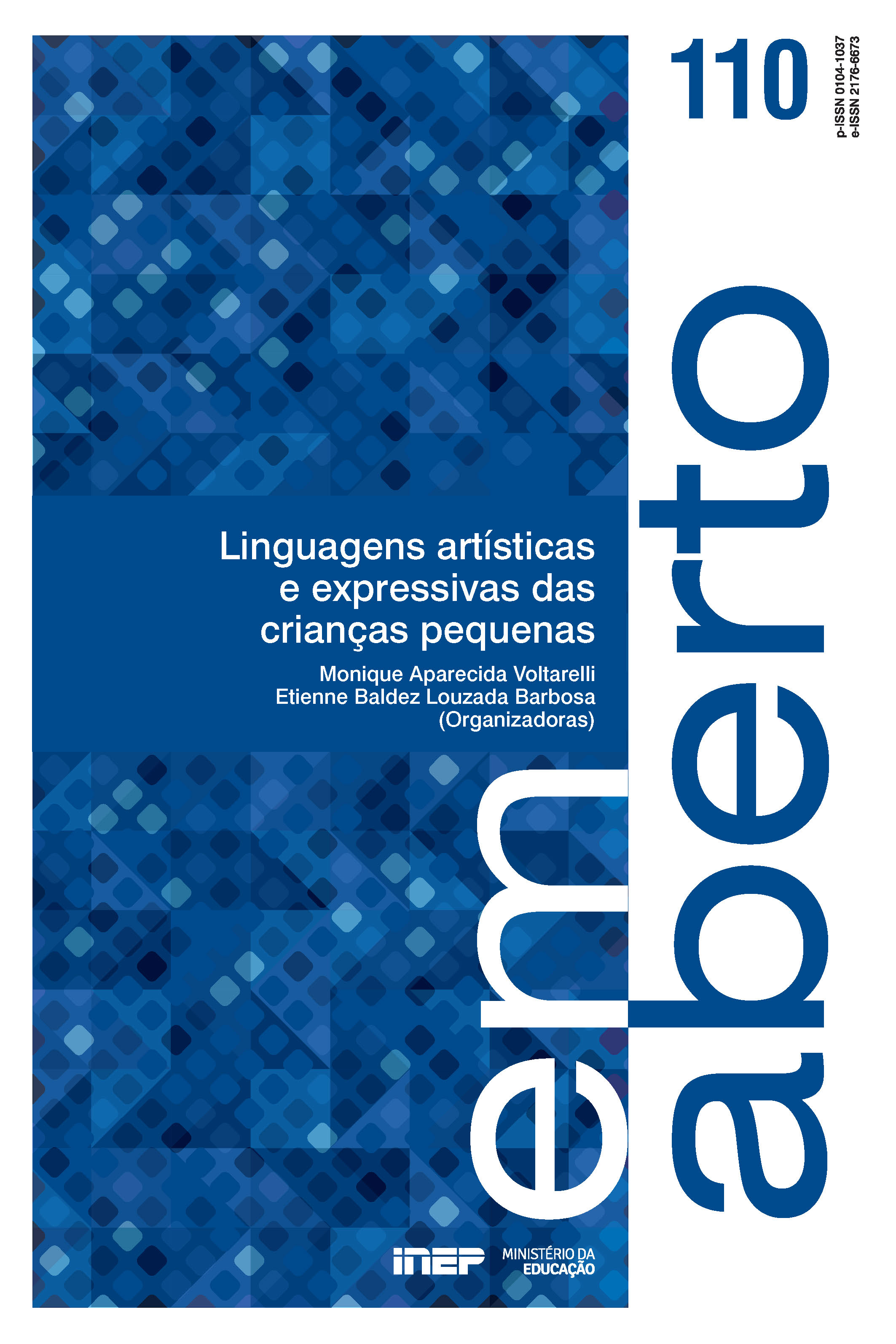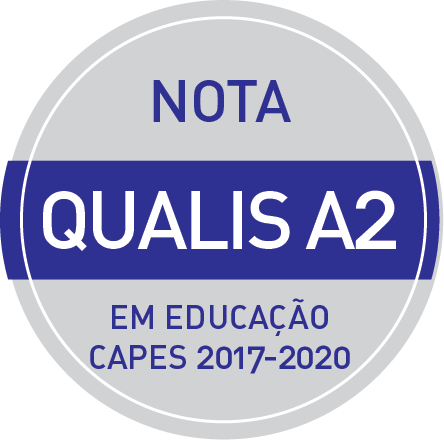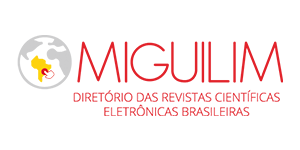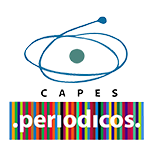Playful and interactive storytelling: a day of art and expressiveness in early childhood education
Abstract
This text reflects on babies’ experiences with expressive languages and originates from a doctoral research, which analyses babies’ relationships with books in the context of early childhood education. Ethnography was the methodological choice, so babies could be taken as participants in the research process, in order to visibilize how they relate to expressive languages, especially with books. The analysis reveals the possibilities for babies to “take the stage” and make “the show” go on, through their interaction with scenic elements that make the storytelling with new outlines, that is a playful and interactive storytelling can be seen in the research field. Scenes staged seek to show the possibilities babies may have to build new narratives and scenic arrangements with toys and historical scenarios, which is also a way of privileging and ensuring that babies relate to artistic and expressive languages.
Downloads
References
BAPTISTA, M. C.; BELMIRO, C. A.; GALVÃO, C. Educação infantil e gênese do processo de construção do leitor. In: DEBUS, E.; JULIANO, D. B.; BORTOLOTTO, N. (Org.). Literatura infantil e juvenil: do literário a outras manifestações. Tubarão: Copiart, 2016.
BARBIERI, S. Interações: onde está a arte na infância? São Paulo: Blucher, 2012.
BARBOSA, M. C. S. Tempo e cotidiano: tempos para viver a infância. Leitura: teoria & prática, Campinas, v. 31, n. 61, p. 213-222, nov. 2013.
BARROS, M. de. Memórias inventadas: as infâncias de Manoel de Barros. São Paulo: Planeta do Brasil, Alfaguara, 2010.
BONNAFÉ, M. Los libros, eso es bueno para los bebes. Barcelona: Oceano Travesía, 2008.
BRASIL. Ministério da Educação e Cultura (MEC). Câmara da Educação Básica (CEB). Resolução no 5, de 17 de dezembro de 2009. Fixa as Diretrizes Curriculares Nacionais para a Educação Infantil. Disponível em: <http://www.seduc.ro.gov.br/portal/legislacao/RESCNE005_2009.pdf>. Acesso em: 8 mar. 2021.
BUSS-SIMÃO, M. Experiências sensoriais, expressivas, corporais e de movimento na Educação Infantil. In: MORO, C.; VIEIRA, D. M. (Org). Leituras em educação infantil: contribuições para a formação docente. Curitiba: Núcleo de Estudos em Políticas de Inclusão Escolar da Universidade Federal do Paraná, 2019. p. 53-88.
BUSS-SIMÃO, M.; ROCHA, E. A C. Nota crítica sobre a composição de pedagogias para a educação infantil. Em Aberto, Brasília, DF, v. 30, n. 100, p. 83-93, set./dez. 2017.
DEBUS, E. Festaria de brincança: a leitura literária na educação infantil. São Paulo: Paulus, 2006.
FERREIRA, M.; NUNES, A. Estudos da infância, antropologia e etnografia: potencialidades, limites e desafios. Linhas Críticas, Brasília, DF, v. 20, n. 41, p. 103-123, jan./abr, 2014.
FRABBETTI, R. A arte na formação de professores de crianças de todas as idades: o teatro é um conto vivo. Revista Pro-Posições, Campinas, v. 22, n. 2, p. 39-50, mai./ago. 2011.
GOELZER, J.; LÖFFLER, D. E se chapeuzinho não fosse vermelho? Um olhar sobre as linguagens infantis. In: CANCIAN, V. A.; GALLINA, S. F. da S.; WESCHENFELDER, N. V. (Orgs.). Pedagogias das infâncias, crianças e docências na educação infantil. Brasília, DF: Ministério da Educação, 2016. p. 227-240.
GONÇALVES, F. As palavras e o seus deslimites: a relação dos bebês com os livros na Educação Infantil. 2019. 250 f. Tese (Doutorado em Educação) – Programa de Pós-Graduação em Educação, Universidade Federal de Santa Catarina, Florianópolis, 2019.
GRAUE, M. E.; WALSH, D. Investigação etnográfica com crianças: teorias, métodos e ética. Lisboa: Fundação Calouste Gulbenkian, 2003.
INFANTINO, A.; ZUCCOLI, F. A arte e as crianças caminhos a explorar, linguagens a experimentar e um mundo todo à espera de ser descoberto. In: CANCIAN, V. A.; GALLINA, S. F. da S.; WESCHENFELDER, N. (Orgs.). Pedagogias das infâncias, crianças e docências na educação infantil. Brasília, DF: Ministério da Educação, 2016. P. 179-192.
KRAMER, S. Autoria e autorização: questões éticas na pesquisa com crianças. Cadernos de Pesquisa, São Paulo, n. 116, p. 41-59, jul. 2002.
LE BRETON, D. As paixões ordinárias: antropologia das emoções. Petrópolis: Vozes, 2009.
OLIVEIRA, M. E. de; STOLTZ, T. Teatro na escola: considerações a partir de Vygotsky. Revista Educar, Curitiba, n. 36, p. 77-93, 2010.
PAIVA, Ana Paula. Um livro pode ser tudo e nada: especificidades da linguagem do livro-brinquedo. 2013. 736 p. Tese (Doutorado em Educação) – Programa de Pós-graduação em Educação da Faculdade de Educação, Universidade Federal de Minas Gerais, Belo Horizonte, 2013.
PARREIRAS, N. Do ventre ao colo, do som à leitura: livros para bebês e crianças. Belo Horizonte: RHJ Livros, 2012.
REYES, Y. A casa imaginária: leitura e literatura na primeira infância. São Paulo: Global, 2010.
RIZZOLI, M. C. Literatura com letras e sem letras na educação infantil do Norte da Itália. In: FARIA, A. L. G.; MELLO, S. A. (Orgs.). Linguagens infantis: outras formas de leitura. Campinas: Autores Associados, 2009.
ROCHA, E. A. C. Por que ouvir as crianças? Algumas questões para um debate científico multidisciplinar. In: CRUZ, S. H. (Org.). A criança fala: a escuta de crianças em pesquisas. São Paulo: Cortez, 2008.
SCHMITT, R. V. As relações sociais entre professoras, bebês e crianças pequenas: contornos da ação docente. 2014. 282 f. Tese (Doutorado em Educação). Centro de Ciências da Educação, Programa de Pós-graduação em Educação, Universidade Federal de Santa Catarina, Florianópolis, 2014.
Copyright (c) 2021 Em Aberto

This work is licensed under a Creative Commons Attribution-NonCommercial 4.0 International License.
These are the terms of this Copyright Notice:
- I declare that I permanently forfeit in favor of the National Institute of Educational Studies and Research (INEP) all rights related to:
-
- editing, publication, reproduction, and distribution of the work;
- publication through digital and electronic media;
- translation of the work to any language;
- updating, re-printing, adaptation, and compression of the work;
- uploading of work in the publishing platform of INEP;
- divulging complete or parts of work through the World Wide Web (internet), whether in Brazil or foreign countries;
- authorization of third parties to execute any of the acts mentioned before.
- I explicitly declare that I am solely responsible for the opinions expressed in the work, and its publication does not violate the rights of third parties.
- I declare that the nature of said work is one of pro bono publico and, as such, I forfeit the right to any compensation regarding ownership rights granted.
- I authorize spelling and grammatical review of the manuscript, provided that the content and opinions therein remain unchanged.












